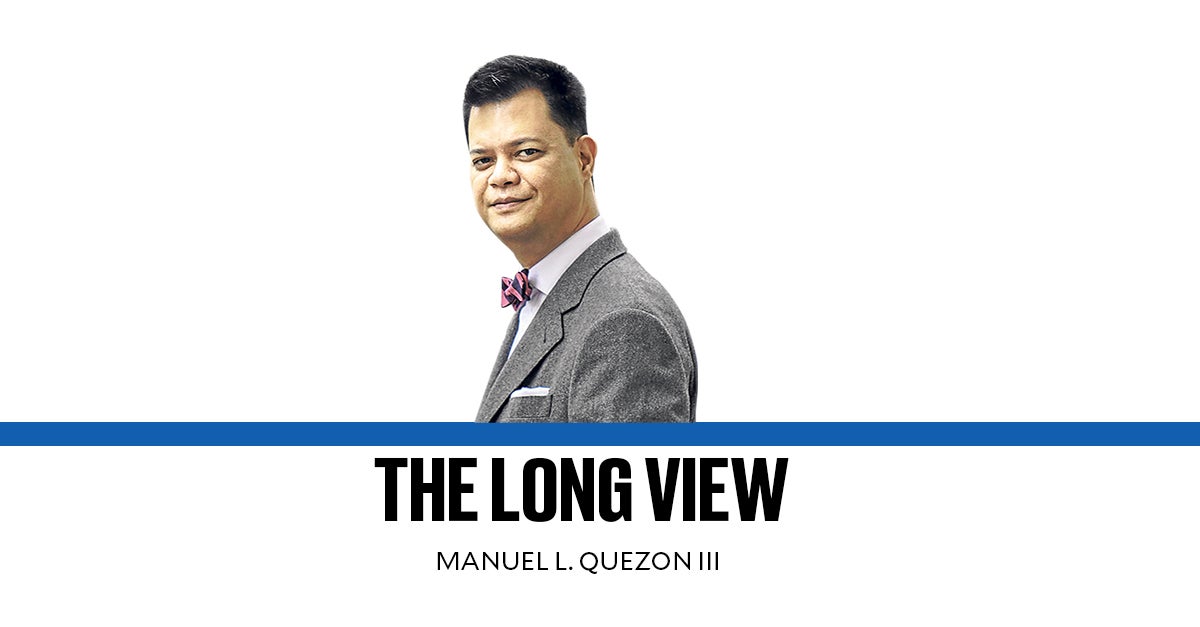Disruption

Just the other day, former Presidential spokesperson Edwin Lacierda penned a provocative online essay. Politically speaking, he argues, we have a thing or two to learn from Silicon Valley, where a “culture of accountability and iteration” stands in stark contrast to the way government operates.
For this, he says, the choice of the country’s next CEO is crucial: “To truly dismantle corruption, the next president cannot be a caretaker of the status quo. The next leader must be a disruptor.”
My personal view is that if we are going to have to wait for the next president to propose, much less lead, a way out of our current mess, the probability of failure on both counts—the proposing and the leading—becomes all that much higher.
If we are going to wait for a new president, only for that president to be elected according to the existing rules, then we’re in for a major disappointment. The first half of a president’s term is spent trying to get a handle on things, not least, because aside from the smaller group that gambled (successfully) on the winning candidate, every president is stuck with a permanent one-party state, which engages in extortion—which presidents have to pay, if they want to get anything done in Congress or locally.
The viability of the administration then gets decided in the midterm election, which is a referendum on the incumbent president, leaving a year or two more to get things done, after which the one-party state starts to (temporarily) dissolve as factions coalesce in support of the next round of candidates. When a winning coalition emerges, the one-party state reconstitutes itself, holding the new president hostage aside from the appointment of coalition members to the Cabinet and the bureaucracy.
Where, in all of this, would there be political time and space for something as vital as taking a look and changing the rules of the game?
I am of the belief that the rules determine political behavior, and if the Constitution can be compared to an operating system, then the Philippine government’s 1987 Constitution is unique on two counts: it is now long in the tooth, but more importantly, it has never been updated since it was loaded into our political system. Here, this combination of being old and obsolete isn’t unique: our banks, programmers will tell you, creak along, and it was not so long ago that companies had to have ancient PCs in their inventory, because the Bureau of Internal Revenue would only accept submissions made through Internet Explorer, which can only be found, because only on them can it still run, on obsolete PCs.
In the case of our present Constitution, many of its bedrock theories—or experiments, if you will—have proven to be failures because of how the document was written, or for reasons similar to the 1935 Constitution. That charter was an exceedingly fine one, but dependent, just as our present one is, not so much on what its provisions contained but on what the people tasked with interpreting and upholding it actually did.
The 1935 Constitution proved incapable of surviving a dictatorship, even if its provisions were incompatible with dictatorship, because it had few defenders in officialdom and most proved unable, unwilling, or both to actively defend it. The 1987 Constitution, by omission (failure to enact antidynasty legislation) or commission (new, unintended interpretations of martial law provisions, judicial interpretations that rendered most paths to amend the charter impracticable or simply impossible) has similarly ended up being a very different document from what its signers intended.
The solution is an elected constitutional convention. The political class has always opposed it, even though the public has consistently viewed it as legitimate, I suspect, because for presidents and the rest, it’s simply too unpredictable in its outcome. But the political class is more vulnerable now, than say, 2001.
The cynical might argue—and be possibly entirely correct—that the sole goal of the government right now is to limit the threat to the entire political class by throwing just enough, but no more than necessary, human sacrifices to pacify an enraged public. An angry public has not identified a way forward other than to nurse its grievances until 2028, and hopefully, throw enough rascals out. But a convention offers a chance to stir the pot precisely in a manner that can’t be gamed out by the powers-that-be. And it would be to head a new government under a new Constitution that the best chance of an effective disruption of the status quo could be achieved.
There is enough of a consensus, whether on limiting family control of political office, or limiting the harmful influences of celebrity and money, on the part of the public—and even between the public and politicians, who both agree, for example, that politics has become too expensive—so that the outcome of a convention would have to conform to certain expectations; the rest could do with a substantial and focused debate on systems and principles. We all know what political battles to expect over the next three years. This would be a chance to sideline those and make them potentially irrelevant.
Email: mlquezon3@gmail.com; Twitter: @mlq3


















